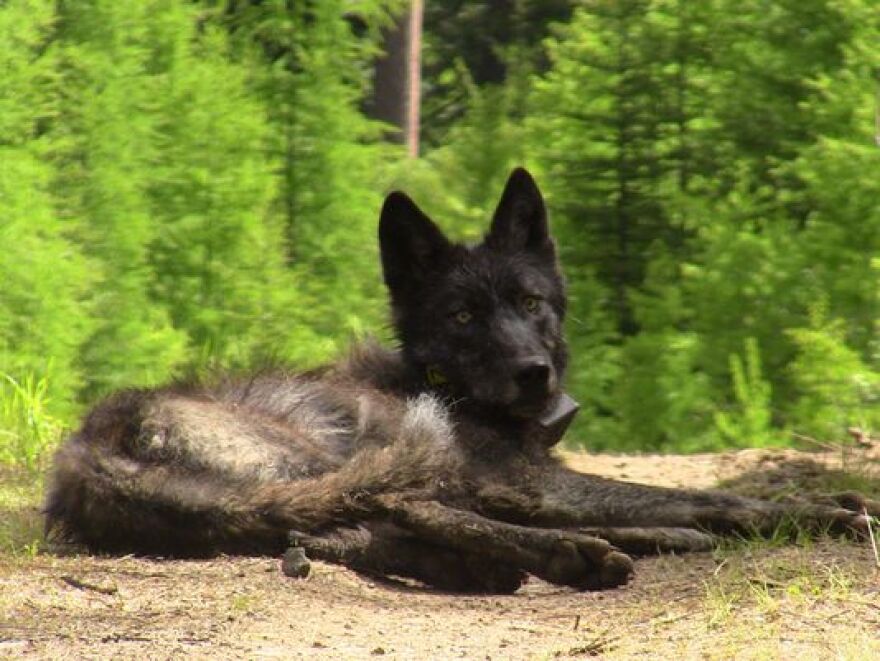Two wolves were found dead under what Oregon State Police called тАЬunnaturalтАЭ circumstances in northeast Oregon during late August.
The male and female pair тАФ who were raising pups тАФ were found deceased within 50 yards of each other by an OSP Fish and Wildlife Trooper during the week of Aug. 24 north of Enterprise.
While the cause of death still is under investigation, state police spokesman Bill Fugate said the case is a criminal investigation and that poaching is being considered.
Killing a wolf in northeast Oregon without permission is illegal in most cases and punishable by up to a year in jail and a $6,200 fine.
Oregon State Police are seeking the publicтАЩs help and requesting anyone who may have information regarding this incident to contact Senior Trooper Kreg Coggins at 541-426-3049 or call the TIP Hotline at 1-800-452-788 or TIP E-Mail TIP@state.or.us.
тАЬWeтАЩre deeply saddened by the highly suspicious deaths of the Sled Springs wolves,тАЭ said Amaroq Weiss, West Coast Wolf Organizer for the Center for Biological Diversity. тАЬWe hope that if this is indeed the act of a misguided individual or individuals, they are quickly caught and brought to justice.тАЭ
The female wolf was radio-collared and known as OR-21. After the collar emitted a mortality signal, ODFW personnel responded to the location and found the two deceased wolves, known as the Sled Springs Pair.
The pair apparently was raising pups born this spring, but their location is not known and few details were avalible.
All wolves in Oregon are protected by the state Endangered Species Act, but that could change next month. The Oregon Fish and Wildlife Commission will consider removing state protection at meetings in October and November.
тАЬThe population of wolves in Oregon is still small, and the death of even a few wolves тАУ either naturally or from persistent human threats тАУ can have a major impact on the success of their recovery in the state,тАЭ said Arren Robertson, spokesman for the Portland-based environmental group Oregon Wild. тАЬThis incident speaks to the need for continuing protections.тАЭ
Wolves in northeast Oregon have less protection under the law than their western counterparts, which are protected under the federal Endangered Species Act.
Wolves in northeast Oregon are not protected under the federal ESA and ranchers can shoot a wolf caught in the act of wounding, biting, wounding, killing or chasing livestock in some circumstances. тАЛ
The Oregon Cattlemen's Association said it encourages all its members to abide by the Wolf Plan.


